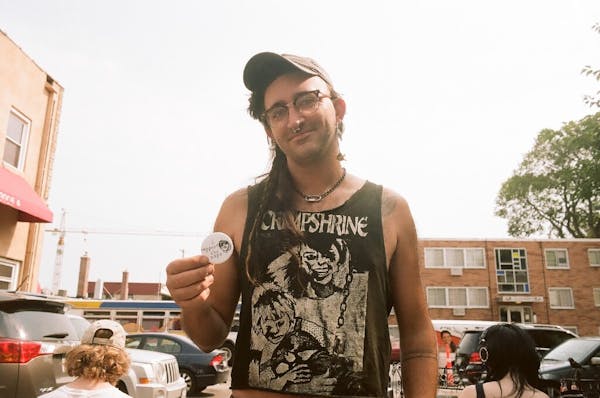Hoping to continue the momentum from the Wall Street protests in New York, activists are planning some civil disobedience at the Federal Reserve Bank in Minneapolis on Oct. 7, and they are not making any secret of it.If the local Federal Reserve has a clue yet as to what this demonstration is all about, or what the bank plans to do about it, they are keeping it to themselves. David Fettig, a Federal Reserve spokesman, said Tuesday afternoon that the bank had no comment. In ominous language on an Internet video, the protesters are vowing to occupy the Federal Reserve.But at a meeting on Tuesday afternoon of about 25 activists, they reiterated their commitment to non-violence, and in an interview afterwards, one of the organizers talked of staging some type of peaceful occupation of some grassy area or sidewalk in the vicinity of the bank. The protest could last for days.For protesters hatching the details for a confrontation against the powers that be, they are remarkably transparent, at least so far. They posted a public notice of their planning meeting, and when a reporter from the Star Tribune showed up, they were willing to let him take notes. Indeed, the group itself recorded the one hour, 40 meeting in Stevens Square Park in south Minneapolis on Tuesday, and planned to post it on its web site, occupymn.orgAsked about how they could organization an "occupation" but be completely open about it, Osha Karow, 23, who helped convene the meeting, told me, "We are trying to be transparent, because we want to be totally nonviolent . We want everyone to know what our intentions are and we also want everybody and anybody to be involved in the process. We are not really worrying about who gets the information, because we are hoping enough people come out who will be in solidarity with us."What about undercover police showing up to see what is going on at the meeting, he was asked. "We are not against the police, we are not anti-government employees," he said. It should be noted that the bank is a heavily guarded facility. When this reporter checked out the bank during the week of the 9/11 terrorist attacks in New York City 10 years ago, he was met outside the building by law enforcement officers who were carrying some type of automatic weapons and they looked to be ready to use them.Whether this demonstration will amount to anything significant is still unclear, but there have been a number of these protests around the country, and indeed, the New York Times noted in a front page news story today, anti-establishment, anti-government demonstrations seem to be flourishing around the world. Karow said that the group's Facebook page has about 800 friends on it.Having covered protests in the Twin Cities for decades, this reporter noted that the ones planning this latest action are, for the most part, not the usual crowd that I've seen at an assortment of demonstrations over the years.Karow described himself to the meeting as an "actor, artist and advocate" who recently moved to Minneapolis from Marshall where he was a student at Southwest Minnesota State University in Marshall.He told me afterwards that the Federal Reserve Bank was chosen as a target for the protest in an on-line vote by about 200 people. People favored a protest at the bank to be in solidarity with a similar protest taking place in Chicago and "also we're against big business."Exactly what the protesters' slogans or demands are have not yet been formalized, although some ideas were thrown out at the meeting like "people over profits." The activists volunteered to lead subcommittees like organizing Internet and social network operations, collecting food and raising money. They also talked about getting a hold of some lawyers, because they assumed their occupation will break some laws. There were also plans to have another meeting on Saturday to pull in more volunteers, hammer out more details and make protest signs.They appear to be trying to organize their meetings using a sort of ultra-democratic process called a "general assembly."In an interview on Wednesday, Karow said, a general assembly is an "an open participatory, horizontally organized process through which we will build the capacity to constitute ourselves in public as autonomous collective force against the crisis of our time."Asked about his own viewpoints, he described himself as a "compassionate existentialist" with "liberal ideas"He said he grew up poor and dropped out of Southwest Minnesota State because he could not afford medical care. He said he had some internal bleeding, but put off going to the hospital because he could not afford it and could not qualify for free care. He said he eventually went in, and got some treatment and now owes the hospital thousands of dollars.
In heated western Minn. GOP congressional primary, outsiders challenging incumbent

Minnesota Sports Hall of Fame: A class-by-class list of all members

This retired journalist changed professional wrestling from Mankato

